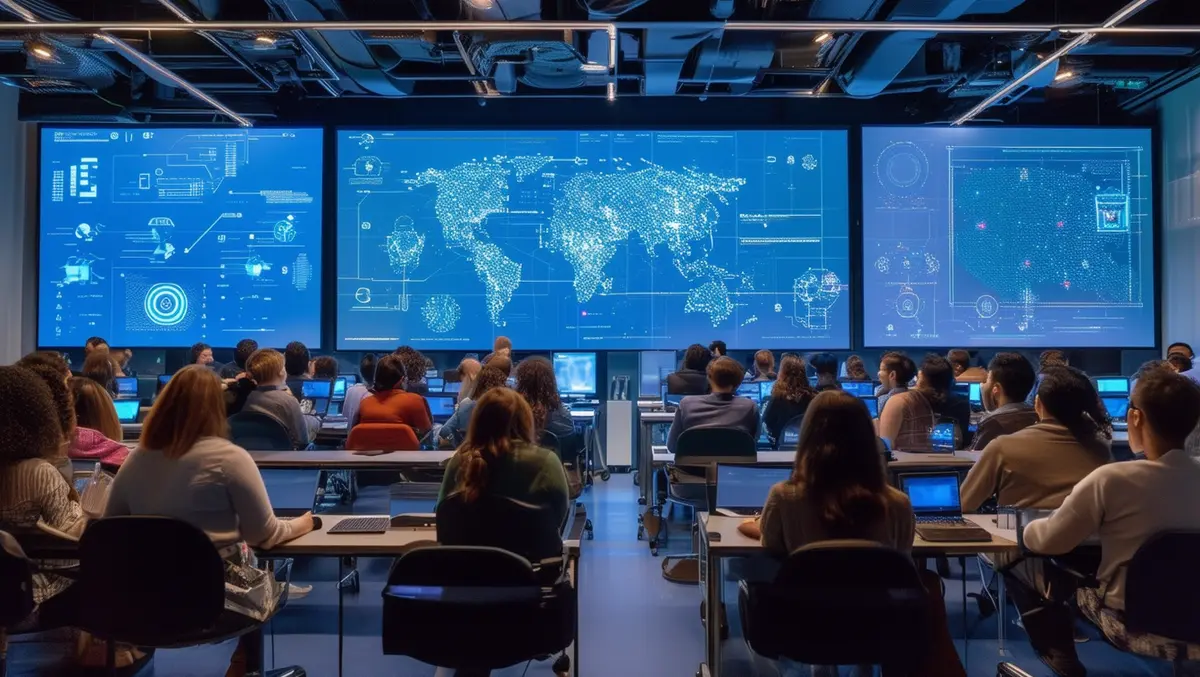
Commonwealth & SAS partner to boost AI skills with USD $10m
The Commonwealth Secretariat and the data and artificial intelligence (AI) company SAS have announced a collaborative initiative aimed at enhancing AI skills within Commonwealth countries. The project includes a donation from SAS valued at USD $10 million, covering AI software, computing resources, and training. This partnership is expected to aid in the training of 10,000 higher education students and educators over the next five years.
An essential part of the initiative is the provision of access to SAS Viya for Learners, a cloud-native platform that supports data analytics, machine learning, and AI. Through this provision, students and educators in Commonwealth countries will benefit from free access to digital learning environments such as SAS Skill Builder and the SAS Educator Portal. These platforms offer a range of digital courses, certification programmes, and hands-on learning opportunities aimed at developing AI and analytics skills.
The Commonwealth AI Consortium (CAIC), part of the Commonwealth Secretariat, is behind this initiative. CAIC aims to build technological capacity, focusing on small states and young people. Suresh Yadav, Senior Director of AI, Trade, Oceans and Natural Resources at the Commonwealth Secretariat, highlighted the broader impact of the initiative. "In our rapidly evolving digital landscape, we face not just a digital divide, but a critical infrastructure divide. If we fail to address this gap and make essential resources available to our youth, we risk losing an entire generation to technological inequality," Yadav stated.
Yadav further emphasised the potential for young people to innovate and solve global challenges through AI. "This isn't just about access to information; it's about empowering young minds with the tools to innovate, create, and solve global challenges. Our partnership with SAS is a vital step towards ensuring that no young person in the Commonwealth is left behind in the digital revolution," he added.
The Commonwealth includes 56 member states, 33 of which are small states. Initially, the SAS collaboration will focus on the Caribbean region before extending to other Commonwealth countries. This effort aligns with the Commonwealth Secretariat's priorities of promoting digital transformation, sustainable development, and building a diverse global workforce capable of supporting AI-driven transformation.
SAS has a longstanding history of collaborating with academic institutions, government bodies, and corporations to enhance data utilisation for improved decision-making and organisational transformation. With this initiative, SAS continues its involvement with educational institutions worldwide, leveraging its extensive Global Academic Programmes to contribute to AI education in Commonwealth countries.
According to market research firm Statista, the AI market has already exceeded USD $184 billion in 2024 and is projected to surpass USD $826 billion by 2030. Sean O'Brien, SAS Senior Vice President of Education, commented on the company's role in equipping students for the evolving job market. "We have spent decades equipping educators with resources and students with the skills they need to seize the hottest jobs in the tech market. Those jobs are now in AI. We are excited to help students change their lives and grow the tech sectors in Commonwealth countries," O'Brien noted.
The programme also focuses on ethical AI usage, a matter of growing importance as powerful AI technologies present both opportunities and challenges. SAS has embedded a commitment to responsible innovation within its culture and technology, including in SAS Viya, which features capabilities such as bias detection, explainability, decision auditability, model monitoring, governance, and accountability.
Reggie Townsend, SAS Vice President of Data Ethics, spoke at the Commonwealth launch event, highlighting the broader societal benefits of the initiative. "This collaboration will bring AI capacity to populations that haven't always benefited from the technological advances that power the world's largest economies. These students will not only gain AI skills coveted by employers around the world, but they will also learn how to wield these powerful technologies ethically in ways that benefit society," Townsend said.


